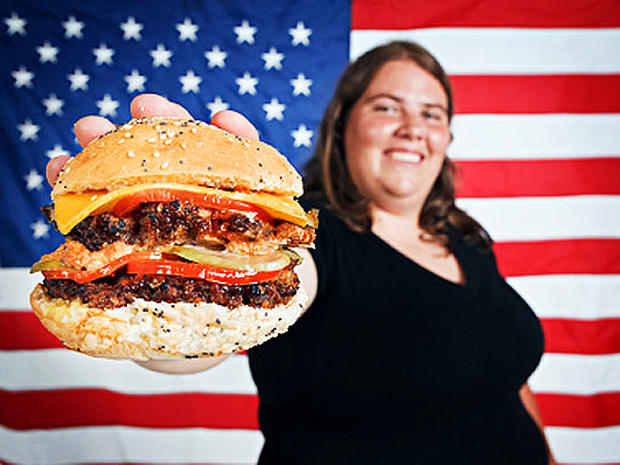Why NYC's trans fat ban is good for the heart
(CBS News) It seems that New York City's ban on trans fats - which requires restaurants to make sure their foods contain less than 0.5 grams of trans fat per serving - is making its residents healthier. A new study has shown that since the ban, people reduced their intake of the bad fats and have not replaced it with other types of artery-clogging fats.
Study: NYC's trans fat ban made people healthier
Trans fat food labels: Are consumers being misled?
The study, published in the July 17 issue of Annals of Internal Medicine, showed that in 2009 (after the trans fat ban went into effect) people ate on average 2.4 g less trans fats, consuming fewer than 0.5 grams of trans fat per meal when compared to rates in 2007 (before the rules were in place). More people also bought items that had 0 percent trans fats, showing an 86 percent increase in choosing foods that were healthier for them.
But, why is this such good news? What's the skinny on trans fats?
Despina Hyde, a registered dietitian and certified diabetes educator with the NYU Langone Weight Management Program in New York City, explained to HealthPop that trans fats are a kind of unsaturated fat that can cause all kinds of health problems.
"Transfats are the worst kind of fats for your heart because they increase the risk for heart disease," she explained. "It can increase LDL - which is bad cholesterol - and decrease HDL - which is good cholesterol."
Getting rid of trans fats not only means eating fewer calories and maintaining a healthy weight, it can help raise your HDL, creating a good health profile.
Trans fats are a naturally occurring substance that are found in low levels in meat and dairy, so they aren't something that people need to completely avoid. The problem occurs when trans fats are consumed in large amounts. High levels of trans fats are usually found in commercial baked goods, which use hardening oils to increase the shelf life of products in a process called hydrogenation, Hyde said.
"The dietary guidelines don't recommend that we cut trans fats out 100 percent just because they are naturally-occurring trans fats," she stated. "If we were to eliminate them from our diet, we may face nutrient inadequacy, but we recommend that we keep their intake as minimal as possible."
If you are craving something salty, try swapping junk or fast food for baked tortilla chips and avocado or guacamole, which has a lot of unsaturated "good" fat, fiber and potassium, Hyde suggests. Edemame with salt or nuts, which have a lot of heart-healthy fats, are also good snacking options.
Now, if you have a sweet tooth, Hyde pointed out that dark chocolate has plenty of antioxidants. A recent opinion from the European Food Safety Agency (EFSA) - the FDA of Europe - has also given cocoa flavonols - or antioxidants from chocolate - the thumbs up for its ability to improve blood flow. Portion control is also a good thing to remember, and eating products like non-fat yogurt topped with flaxseeds for additional heart health benefits or low fat ice cream can be a good treat, Hyde says. Fruits are also a good way to quell that sweet craving. Nut butter can also help lower LDL cholesterol and may help you maintain good health.

